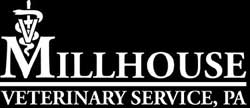Caring for the Senior Horse
by Dr. Ed Millhouse, DVM
Proper nutrition is essential. Feed your senior horse separate or away from more aggressive horses. Be sure to adjust rations to maintain proper body condition. A good rule of thumb is to be able to feel the ribs but not see them. A little extra fat going into winter is acceptable. Some seniors may, for many reasons, require a special diet. Feeds made especially for older horses are usually easier for them to both chew and digest, making sure their bodies absorb as many of the nutrients as possible. Joint supplements are something you may want to consider. Products like MSM and Joint Rescue or Cosequin can be very beneficial in maintaining joint health and comfort.
Dental care is just as important as proper nutrition. Poor dentition is the number one age limiting factor in horses. A routine dental examination should be performed at least once, preferably twice, per year. Common dental problems in the aging horse are missing or loose teeth, wave mouth, sharp edges and large hooks, all of which can hinder proper eating and efficient digestion.
Routine health care is so important at this stage of life. Your senior horse should have both a physical exam and blood work done every year. Older horses' immune systems weaken and can be more susceptible to infectious diseases. All horses should be vaccinated annually. Keeping your senior on a regular deworming schedule will also help to keep him or her healthy. Daily dewormer combined with an oral ivermectin spring and fall is ideal, otherwise keep them on a regular schedule of every 8 weeks rotating products each time. See our insert for our recommendations.
Hoof care should remain regular. Your farrier should trim or shoe the horse whether or not you ride to maintain proper hoof shape and health.
Adequate and appropriate exercise is important to maintain muscle tone, mobility and flexibility. Always be sure to allow more time to warm up and cool down to prevent injury.
Observation is your best tool. Older horses are prone to colic, diarrhea, choke, heaves and tumors. Watch for changes in behavior, attitude and body condition. Monitor appetite, manure production, and water intake on a regular basis to get a good feel for what is "normal" for your horse.
Thank you to Dr. Millhouse for this information! Check out his website at www.millhouseveterinary.com for more!
